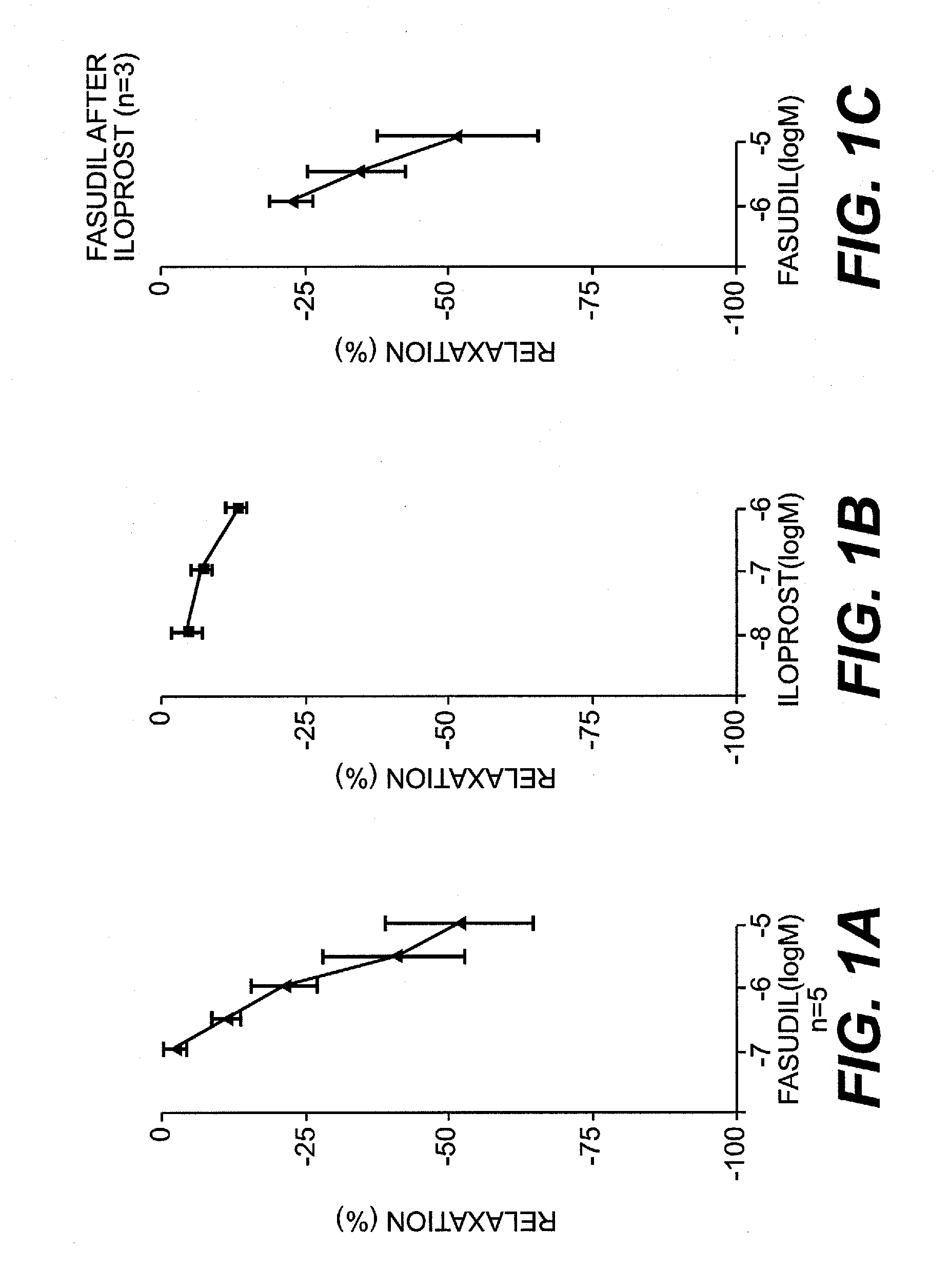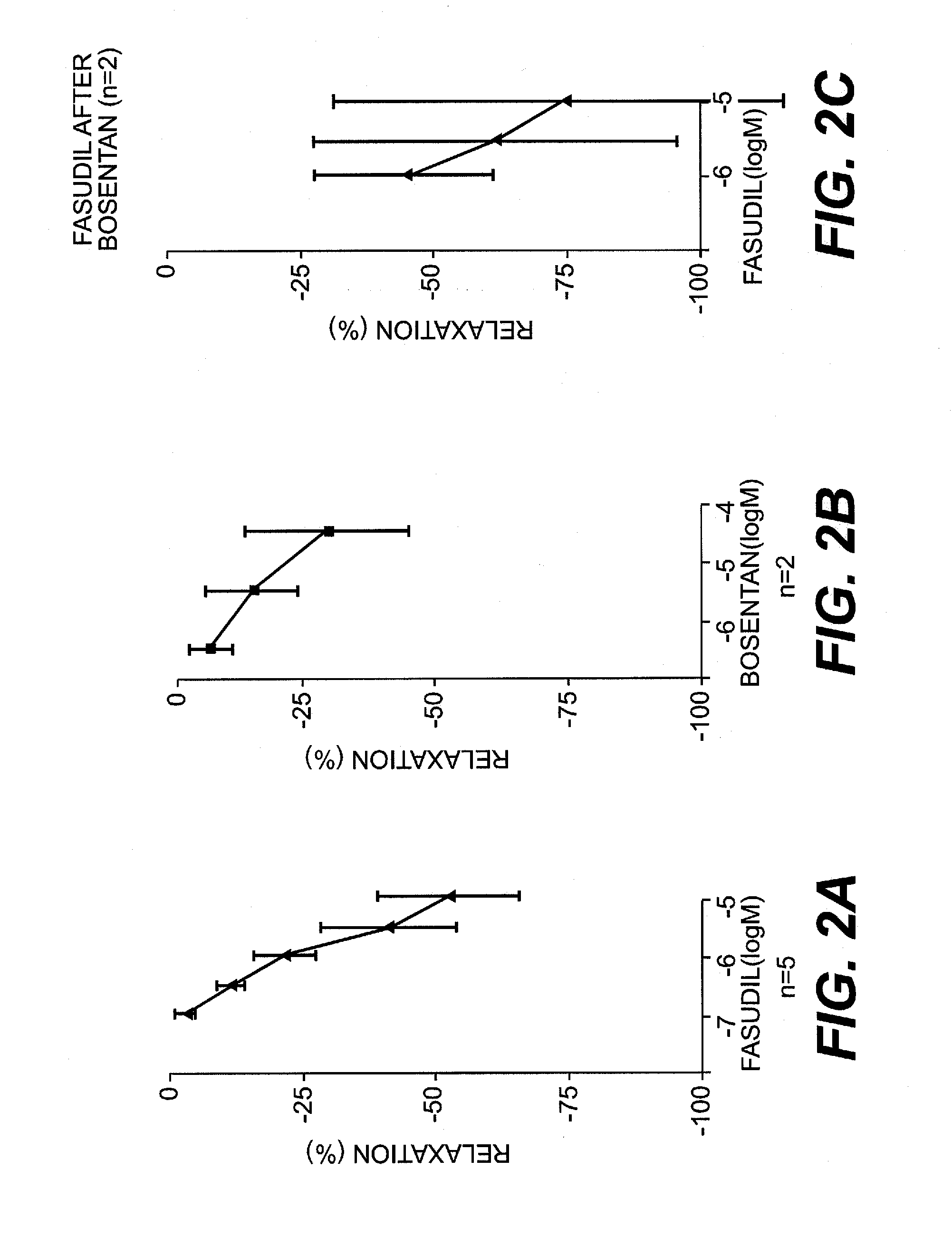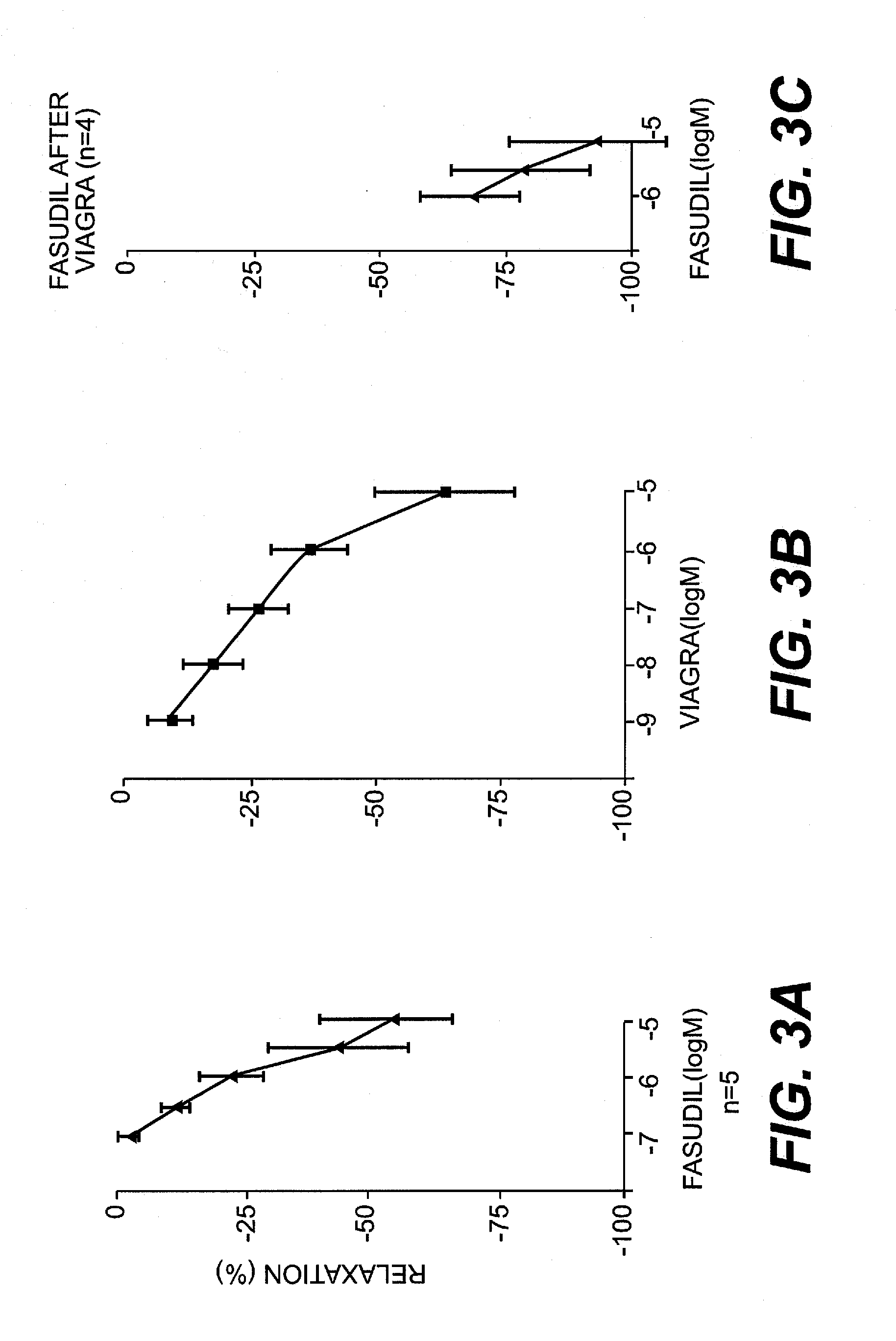Fasudil in combination therapies for the treatment of pulmonary arterial hypertension
a combination therapy and pulmonary arterial hypertension technology, applied in the field of therapeutic formulations, can solve the problems of unsatisfactory current therapies for pulmonary arterial hypertension, imbalance of vasodilators, and impaired endothelial function, and achieve the effect of preventing pah and/or stable angina
- Summary
- Abstract
- Description
- Claims
- Application Information
AI Technical Summary
Problems solved by technology
Method used
Image
Examples
example 1
Isolated PA Rings
[0074]Small (4th or 5th branch) pulmonary arteries (SPA, 200-300 μm ID) were isolated from rats exposed to chronic hypoxia (˜10% oxygen) for 3 to 4 weeks. Briefly, after anesthesia with pentobarbital sodium (30 mg ip) and heparinization (100 IU), the heart and lungs were removed en bloc, and the SPA were isolated under a dissecting microscope. Care was taken to avoid damage to the endothelium. The SPA rings were, placed on steel wires attached to a force transducer and suspended in baths containing 10 ml of physiological salt solution (PSS) at 37° C. Resting passive force was adjusted to a previously determined optimal tension (determined by maximum response to 80 mM KCl: 400 mg for SPA from normotensive lungs (NL), and 750 mg for SPA from hypoxic hypertensive lungs (HL). Rings were gassed with 21% O2-5% CO2-74% N2 and allowed to equilibrate for 60 mM. The artery rings were then constricted with a combination of endothelin-1 (ET-1) (3 nM) plus thromboxane analogue U...
example 2
Isolated PA Rings
[0075]The experiments are performed essentially as described above, but the rings are constricted with each of the vasoconstrictors individually. The dose response curves of fasudil with iloprost, fasudil with bosentan, fasudil with sildenafil show synergistic effects on the relaxation of the PA rings.
example 3
Conscious Catheterized Rats
[0076]Experiments are performed with a chronically hypoxic, pulmonary-hypertensive group of rats which have been exposed to hypobaric hypoxia (410 mmHg barometric pressure, 76 mmHg inspired O2 tension) for 3-4 wk in a chamber flushed continuously with room air to prevent accumulation of CO2, NH3, and H2O. Hypobaric exposure has been 24 h / day, except when the chamber has been opened for 10-15 min every 2 days to remove rats or clean cages and replenish food and water. All rats are exposed to a 12:12-h light-dark cycle and allowed free access to standard rat food and water.
[0077]The chronically hypoxic rats are anesthetized with ketamine (100 mg / kg) and xylazine (15 mg / kg) for placement of catheters in the right jugular vein and pulmonary and right carotid arteries (Oka M. 2001 Am J Physiol Lung Cell Mol Physiol 280: L432-L435). The rats are allowed to recover for 48 h in room air. After recovery, conscious rats are placed in a ventilated plastic box, and pu...
PUM
 Login to View More
Login to View More Abstract
Description
Claims
Application Information
 Login to View More
Login to View More - R&D
- Intellectual Property
- Life Sciences
- Materials
- Tech Scout
- Unparalleled Data Quality
- Higher Quality Content
- 60% Fewer Hallucinations
Browse by: Latest US Patents, China's latest patents, Technical Efficacy Thesaurus, Application Domain, Technology Topic, Popular Technical Reports.
© 2025 PatSnap. All rights reserved.Legal|Privacy policy|Modern Slavery Act Transparency Statement|Sitemap|About US| Contact US: help@patsnap.com



